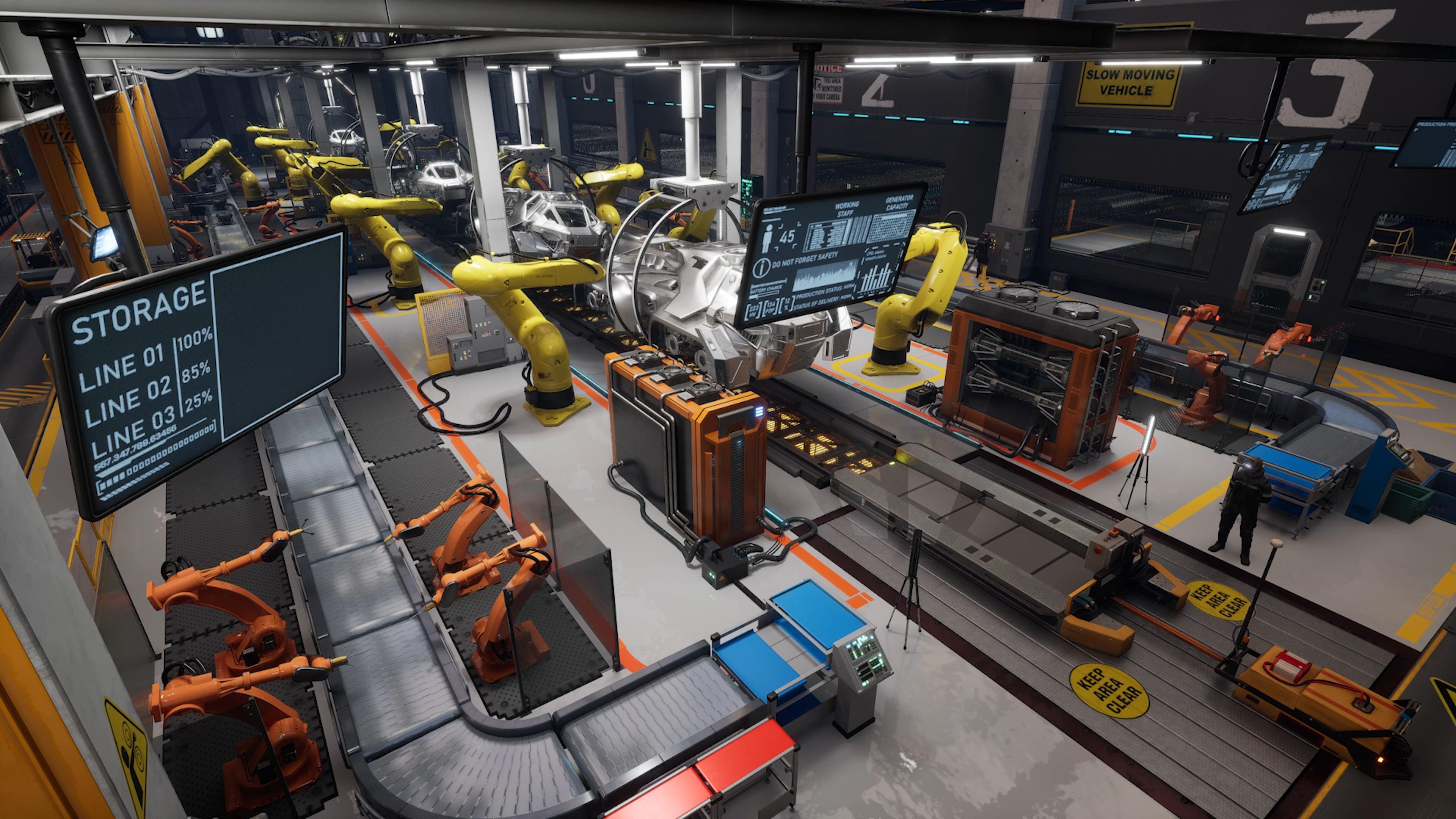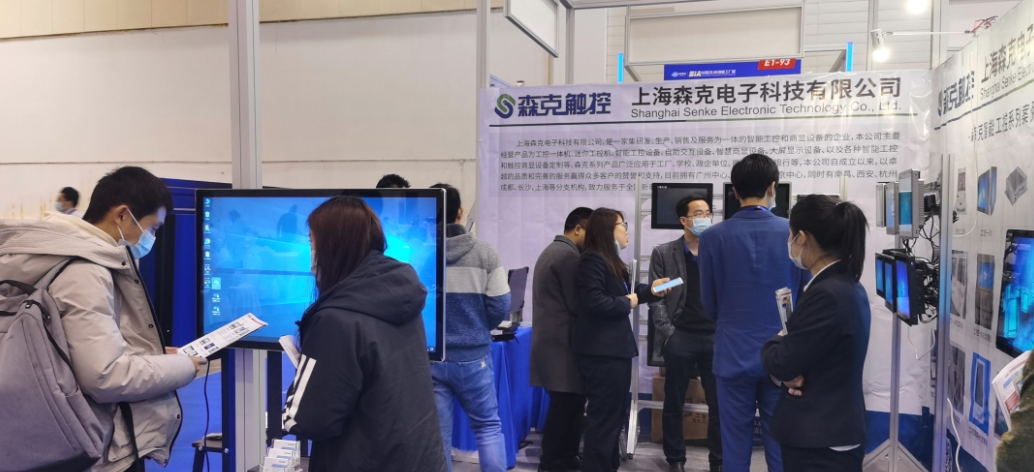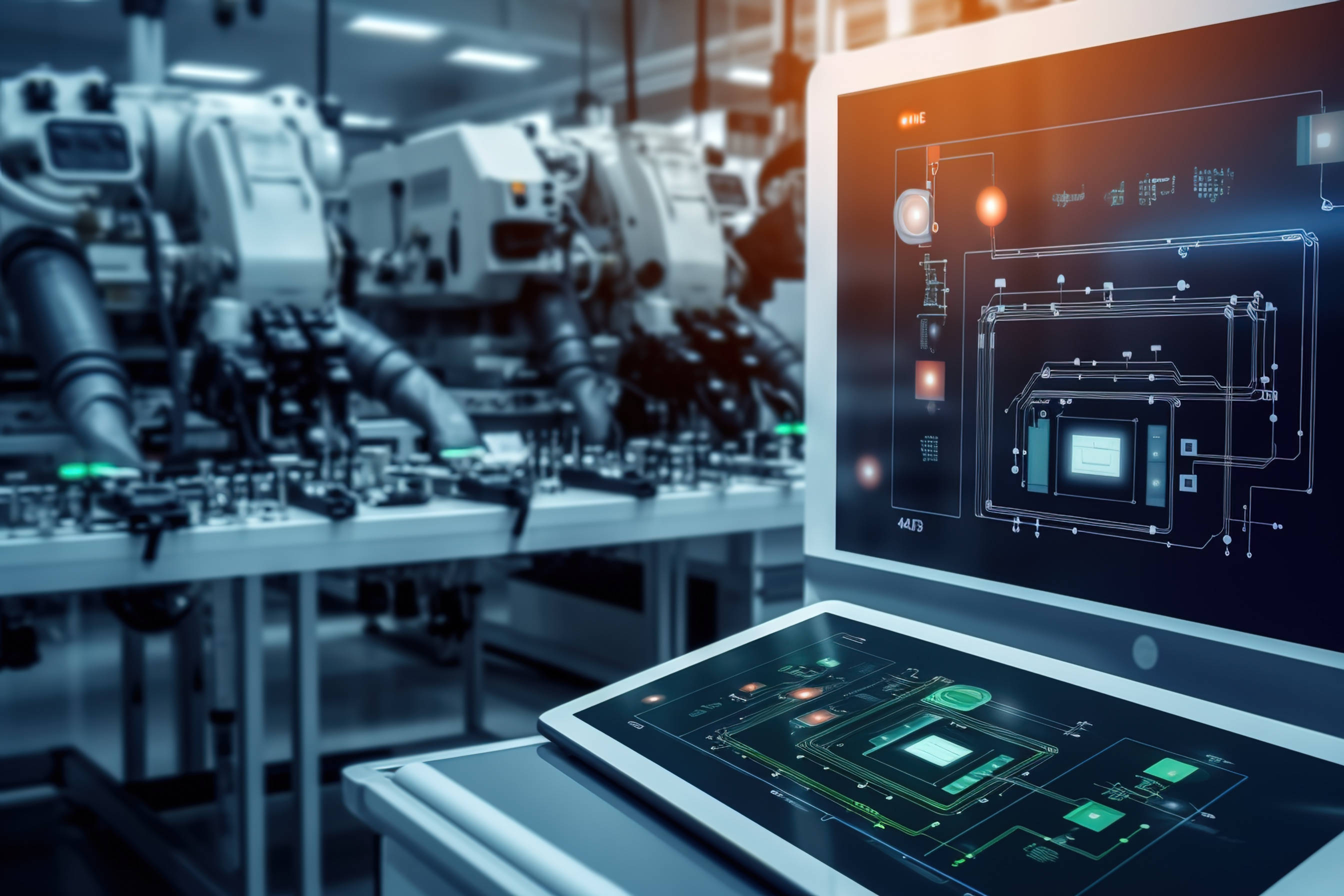“Artificial Intelligence +” Ignites industrial production and transforms the “game rules” of intelligent manufacturing
Industry Trends, News 2022-06-14
(Du Feng, reporter) At present, artificial intelligence, as a strategic technology leading the new round of scientific and technological revolution and industrial transformation, has become an important driving force for new industrialization. At a recent press conference held by the Information Office of The State Council on the development of industry and information technology in the first quarter of 2024, Tao Qing, spokesperson for the Ministry of Industry and Information Technology and director of the Bureau of Operation Monitoring and Coordination, said that the number of artificial intelligence enterprises in China has exceeded 4,500, and innovative achievements such as intelligent chips and general large models are emerging at an accelerated pace. The intelligent infrastructure is constantly being consolidated. The accelerated construction of digital workshops and smart factories has laid a solid foundation for the empowerment of new industrialization by artificial intelligence. Promoting the empowerment of new industrialization by artificial intelligence will also serve as a booster for the transformation and upgrading of the manufacturing industry, facilitating the transformation and upgrading of traditional industries and accelerating the formation of new quality productive forces.
Promote artificial intelligence to empower new industrialization
Promoting new industrialization has become an inherent part of high-quality economic development, and AI empowering new industrialization is the core essence of intelligent manufacturing. In recent times, several important meetings have proposed to strengthen the deployment of research related to new industrialization.
This year’s “Report on the Work of the Government” centers on the theme of accelerating the development of new quality productive forces and further promoting digital economy innovation. It proposes to deepen the research and application of big data, artificial intelligence and other technologies, and carry out the “Artificial Intelligence Plus” action, which means that artificial intelligence technology will be more widely applied in various fields and deeply integrated with traditional industries.
The Ministry of Industry and Information Technology also stated that it will continue to promote the digital transformation of the manufacturing industry, actively build smart factories, implement the special action for digital empowerment of small and medium-sized enterprises, accelerate the empowerment of digital technologies, promote the development of the manufacturing industry towards digitalization, networking and intelligence, carry out the “Artificial Intelligence +” action, and promote the empowerment of new industrialization by artificial intelligence.
Zhou Ji, an academician of the Chinese Academy of Engineering and the director of the National Strategic Advisory Committee for Building a Manufacturing Power, said that promoting the empowerment of new industrialization by artificial intelligence is the technical route for advancing new industrialization and accelerating the building of a manufacturing power.
Zhu Minghao, executive director of the China High-End Manufacturing Research Center at Beijing Jiaotong University, also believes that the construction of a manufacturing power should be organically integrated with the development of the digital economy to form a multiplier and superimposed effect. It is necessary to actively apply digital technologies such as artificial intelligence, big data and cloud computing, accelerate the construction of intelligent manufacturing factories, and promote the transformation and upgrading, quality improvement and efficiency enhancement of traditional industries.
AI is integrated into the production process to enhance quality and efficiency
From the traditional “person-to-person” monitoring to the 24-hour all-round surveillance by artificial intelligence, from robots neatly stacking goods to unmanned vehicles transporting them in an orderly manner to designated locations, from manual inspection to AI visual inspection improving inspection accuracy, the deep integration of artificial intelligence and manufacturing has continuously enhanced the production efficiency of production lines… In the digital transformation of industries, operators, relying on their own advantages in networks, computing power, and openness capabilities, are accelerating the integration and application level of new-generation information and communication technologies such as 5G, cloud computing, edge computing, big data, and artificial intelligence, fully unleashing the industry empowerment effect of “5G+ industrial Internet”.
In Fujian, China Telecom has assisted Deao Knitting in putting into operation the country’s first AI intelligent fabric inspection machine. By applying 5G, big data and self-developed AI visual algorithm technology for weft knitting in the product inspection process, the AI fabric inspection machine has replaced manual fabric inspection. The fabric inspection speed has reached 60 meters per minute, which is 50% more efficient than manual inspection, and the fabric defect detection rate has reached 80%. It is 30% higher than manual operation.
In Jiangsu, China Mobile’s 5G network has connected every production link in the vulcanization workshop of the semi-steel factory of General Technology Company. With the help of 5G, various production data can be uploaded and downloaded at high speed, forming an organic whole of intelligent manufacturing. Even in the absence of lighting, the production workshop can achieve 24-hour continuous production, saving 50% in labor costs, increasing production efficiency by 40%, and reducing operating costs by 20%.
In Henan Province, China Unicom’s 5G technology and AI technology have formed a “sky eye” covering every corner of the interconnected factory of Haier water heaters in Zhengzhou. The data collected by 5G cameras in the factory buildings and factory areas are processed through intelligent recognition algorithms deployed on the 5G edge cloud, quickly identifying dangerous behaviors such as illegal operations, mixed traffic of people and vehicles, unauthorized entry into the factory, and entering restricted areas. The alarm device promptly issues a reminder and takes photos for evidence. After the “Sky Eye” was put into use, the factory’s violations decreased by 40% and the safety accident rate dropped by 30%, significantly enhancing safety.
Face challenges head-on and accelerate the advancement of “Artificial Intelligence Plus”
During the opportunity period of the explosive growth of the artificial intelligence industry, it is an inevitable trend for China to promote the “Artificial Intelligence Plus” initiative. According to data from the China Academy of Information and Communications Technology under the Ministry of Industry and Information Technology, in 2023, the enterprise adoption rate of generative artificial intelligence in China has reached 15%, with a market size of approximately 14.4 trillion yuan. Such a market scale has laid a solid foundation for the promotion of the “Artificial Intelligence +” initiative. In the process of embracing “Artificial Intelligence +”, we also face some challenges.
On the one hand, the development of the computing power industry that supports the advancement of artificial intelligence technology in China is uneven, and there are problems such as the lack of computing network scheduling platforms. At present, China is steadily advancing the construction of computing power infrastructure and accelerating the formation of a national integrated computing power system. As the national team and main force in the construction of digital information infrastructure, the three major operators are accelerating the construction and investment in computing power infrastructure. Among them, China Telecom continuously optimizes the layout of ubiquitous computing power infrastructure of “2+4+31+X+O”, and builds regional central nodes in the Beijing-Tianjin-Hebei region, the Yangtze River Delta, the Guangdong-Hong Kong-Macao Greater Bay Area, and the Chengdu-Chongqing region on a large scale. The innovatively launched computing power distribution network – Xirang, by integrating two fundamental capabilities – the self-developed computing power scheduling engine and the computing power resource management platform – provides a one-stop solution for rapid cloud migration and on-demand computing power usage.
On the other hand, most applications of artificial intelligence are initial innovative projects, and it will still take time for artificial intelligence to be widely and deeply applied throughout the entire industrial manufacturing process. Liu Bochao, deputy director of the Department of Science and Technology of the Ministry of Industry and Information Technology, said that the application of digital technologies such as artificial intelligence in different links such as research and development design, production and manufacturing, inspection and testing, as well as in different industries such as electronic information, biomedicine, raw materials and equipment manufacturing will be expanded. Taking the deep integration of artificial intelligence and manufacturing as the main line, we will make overall plans for general large models and industry large models, cultivate industry large models for manufacturing scenarios, and accelerate the empowerment of new industrialization by artificial intelligence.
China Telecom has established a “1+N+M” series of products for the Starry Sky large model, creating a general basic large model foundation that covers four major capabilities: semantics, voice, vision, and multimodal, and has achieved open source. China Mobile is accelerating the construction of a “1+N” general and specialized large model system, independently developing the secure and controllable “Jiutian” series of general large models, providing “AI computing power + large model” services to thousands of industries, and at the same time building an AI product family to speed up the transformation from “+AI” to “AI+”, in response to the needs of digital and intelligent transformation of production, life and governance methods. Provide high-level intelligent business applications externally. China Unicom has launched the “Unicom Yuanjing” large model system, adopting a “model + tool” approach to address the “last mile” issue for the application of large models in real economy scenarios.



